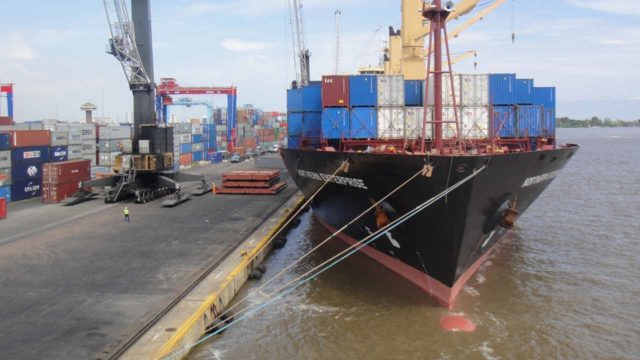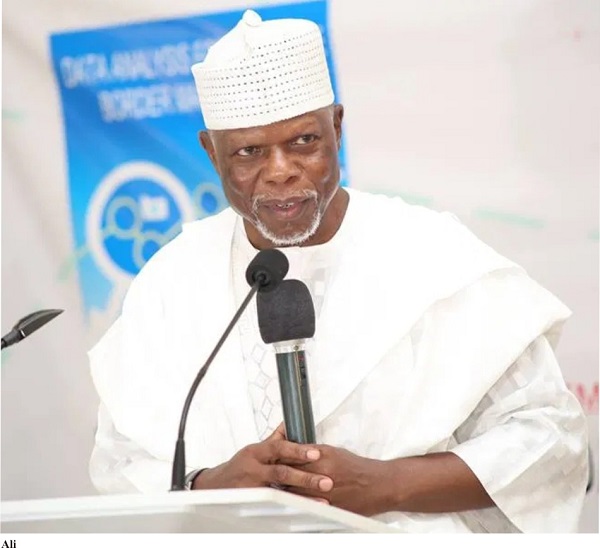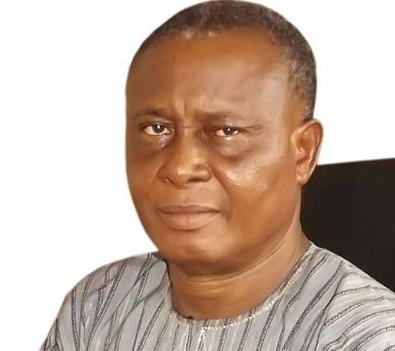Regional Integration: Transport Component Missing In AfCFTA – African Shipowners
· No integration without transport – LCCI
· How 15-Man Cabotage committee plans to acquire vessels
By Kenneth Jukpor
There are indications that the much celebrated African Continental Free Trade Agreement (AfCFTA) may end up as another regional document without significant impact on African economies; as the African Shipowners have lamented the absence of the vital transport component in the agreement.
Worried by this strange omission, the African Shipowners Association (ASA) has begun plans to schedule a meeting with the African Union Chairperson, President Abdel Fattah el-Sisi of Egypt.
The former President of ASA, Barr. Temisan Omatseye, revealed this during an exclusive chat with MMS Plus last week, noting that the Secretary General of African Ship-owners Association, Mrs. Funmi Folorunsho made the discovery last week as the ship-owners’ group sought to explore the logistics component in AfCFTA.
“I had a long conversation with the Secretary General of ASA yesterday and she was telling me that shipping was not considered in drafting the AfCFTA. I’m yet to confirm this but I’m worried by it. I’m planning to get the AfCFTA not because of the trade issues but to know the logistics aspect. I have told the Secretary General of ASA to schedule a meeting with the A.U Chairperson on this,” Omatseye said.
This development is coming on the heels of the signing of the agreement by Nigeria as President Mohammadu Buhari who appended his signature at the launch of the new agreement during the 12th Extraordinary Session of the African Union in Niamey, Niger Republic.
According to Omatseye, Nigeria’s decision to sign the AfCFTA also means that it is very important that Cabotage works.
“Everyone is talking about free trade but nobody is talking about how these goods would be moved. With the AfCFTA, it is so clear that if a nation doesn’t get it acts right in terms of logistics, other countries could develop their shipping and logistics trade and dominate areas where Nigeria should be leading,” he said.
Despite experts positing that improvements in transport infrastructure, open and competitive markets in logistics and service sectors and availability of intermodal links were prerequisite to attaining the objectives of AfCFTA, it appears the agreement is devoid of such considerations.
AfCFTA, estimated to boost intra-African trade by 52% by 2022 according to the United Nations Economic Commission for Africa, has gotten endorsement from all African countries except Eritrea and Eritrea has also asked to join the agreement.
Speaking with MMS Plus on the missing function of transport in AfCFTA, the Director General of Lagos Chamber of Commerce and Industry (LCCI), Mr. Muda Yusuf, said that if there was no provision for shipping in that agreement, it is a huge omission.
“If would be a huge and costly omission to have developed AfCFTA without plans for transport. We can’t have continental trade without talking about the connectivity. There is need for emphasis on this because the problems we have with regards to trade in the nation and the West African region has always been transportation”, Muda said.
The LCCI Director-General described transportation as a critical success factor in any integration within the region.
“This is something that has to be addressed speedily; otherwise there is no basis for integration. Without connectivity, we can’t have integration” he maintained.
On his part, the Chairman, Nigerian Ports Consultative Council, Otunba Kunle Folarin allayed fears that transportation was omitted in the agreement.
According to Folarin, when the protocol for implementation comes out, the place of transportation and shipping in particular would be outlined “at that point we would see the details”.
He also reiterated the objectives of the agreement cannot be fulfilled without shipping.
“It is a trade agreement and you can’t do trade at such continental level without shipping. The agreement only deals with fundamental policy issues, it doesn’t go into details. When the protocol of implementation comes out, we would see the details,” he said.
Over the years, economic experts have lamented that the recurring problem inhibiting Nigeria’s economic development is that transport sector is always neglected during formulation of policies that affect the economy; the problem seems to have escalated to the African region.
Meanwhile, electricity firms under the aegis of the Association of the Power Generation Companies (APGC), have noted that without adequate power supply the benefits of the agreement to Nigeria would be minimal.
APGC revealed this in a congratulatory message to the President on signing AfCFTA, stating, “In direct relation to the just-signed AfCFTA agreement, the benefits it poses to Nigeria may not be fully reaped until the problems of the power sector are fully addressed.
“Goods and services offered by the country may not be comparatively/competitively priced, when compared to other nations with better power supply. Thus, the cumulative result of a significant boost in trade and, therefore, the economy, may not be realized.”
The association further stated, “For instance, steel mills consume a huge amount of power to convert pig iron blocks to liquefied iron, mixed with ingredients such as carbon, alloys and chemicals to change into a different type of steel, alloy, bars, rods, H-beams, sheet metals, etc.”
In another development, a 15-man committee on implementation of Nigeria’s plan for the cessation of Cabotage waivers has started pondering the launch of an Initial Public Offer (IPO), among other strategies to aid Nigerians acquire vessels.
The Nigerian Maritime Administration and Safety Agency (NIMASA) had set-up the committee which was inaugurated on July 3rd, known as NIMASA/ Stakeholders Joint Committee on implementation of NIMASA’s five year strategic plan for cessation of grant of Cabotage waivers.
Speaking on the goals of the committee, the Chairman, Barr. Temisan Omatseye said, “We are going to brainstorm and talk to the banks to find out why the system hasn’t worked. We are open to the option of launching an IPO to finance vessels. We would go to the Nigerian Stock Exchange (NSE) to find out how we can raise an IPO to finance vessels. We would explore every strategy to get the desired results”
While he noted that the Bank of Industry (BoI) was represented in the committee, Omatseye indicated that the committee could co-opt other members from the commercial banks.
He expressed optimism that the committee would be able to proffer solutions to challenges facing Cabotage in the country, noting that Cabotage hasn’t really worked in Nigeria after 16 years of enacting its Act.
“Our expectation is to work like Cabotage is just starting today. We are planning to put in systems that allow for full implementation of Cabotage and also for the disbursement of the Cabotage Vessel Finance Fund (CVFF)”, he said.
The terms of reference for the committee include; sourcing Foreign Direct Investments (FDIs) in Nigeria for ship building and repair yards, adopting the use of technology in ship registry to drive the strategic plan and online registration of Cabotage vessels, engage Nigeria Customs Service (NCS), Nigerian National Petroleum Corporation (NNPC), Nigerian Immigration Service (NIS) Department of Petroleum Resources (DPR), Nigerian Liquefied Natural Gas (NLNG) Limited, National Petroleum Investment Management Services (NAPIMS), NIDAS Shipping, among other agencies.
The committee would also review the Cabotage Act, gather information for the enhancement of database for Cabotage operations, facilitate joint venture partnerships between foreigners and Nigerians in the maritime sector, and review the CVFF guidelines.
“We are only a committee that would report findings to NIMASA for implementation. Members of NIMASA are also on this committee, so we going to take a joint-decision as we support NIMASA in succeeding with this Cabotage regime” he added.
On seafarers training, he maintained that NIMASA could partner NNPC to get the oil company to exploit the tools of negotiation by insisting that Nigerian seafarers are placed onboard vessels that carry Nigerian crude.
Membership of this NIMASA/ Stakeholders committee comprises six NIMASA managerial staff and representatives from financial institutions, ship owners associations, ship operators, ship building yards and manning agents associations.








